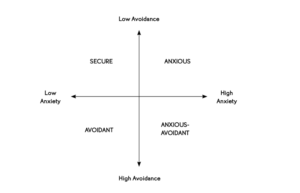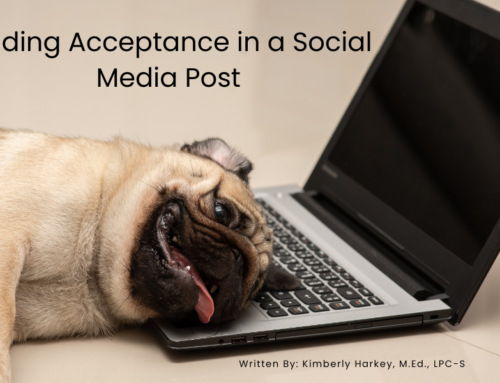Attached: The Book You Didn’t Know You Needed
Written By: Gabi Mahan, MA
Have you recently experienced a break up? Do you often wonder why you continue to pick partners that aren’t right for you? Do you feel like you’re a dating magnet for partners that can’t commit?
You need to read the book we can’t stop talking about: Attached: The New Science of Adult Attachment.
Let’s start off with some definitions and a little psycho-education on attachment. I promise to keep it short and sweet!
According to John Bowlby, the founder of the Attachment theory, attachment is a deep and long-lasting emotional bond that connects one person to another across the span of our life. The theory states that every individual identifies with one of the four following attachment styles: anxious, secure, avoidant, or a combination of anxious and avoidant—referred to as anxious-avoidant. Our attachment system is the system responsible for locating and tracking the availability of our attachment figures. Bowlby’s research mainly focuses on the attachment to our primary caregiver as an infant or child. Fortunately for us, the book Attached takes it a step further and looks into the evolution of our attachment style throughout the course of our life and how it can impact our romantic relationships.
I would imagine you’re all wondering, “What’s my attachment style? What’s my partner’s attachment style?” Well, guess what? I am here to provide you with those answers.
But, before we jump in, I would like to disclose something very important:
You are not “good” for having a secure attachment and you are not “bad” for having an anxious or avoidant attachment. Our attachment styles evolve as a product of our environment and personal experiences—especially in romantic relationships. My hope is that this will provide you with some insight on what you feel and how you behave in romantic relationships. In addition, I hope this helps you navigate relationships more easily and allows you to meet someone that is able to satisfy your needs. Remember, your needs are just as important as your partner’s!
So, with that being said, let’s get right into it!
The following statements will provide you with a general idea of how each of these attachment styles think and behave.
If these statements are TRUE for you, then you most likely fall into the anxious category:
- I often worry that my partner will stop loving me.
- When I show my partner how I feel, I’m afraid he/she/they will not feel the same about me.
- I tend to get very quickly attached to a romantic partner.
If these statements are TRUE for you, then you most likely fall into the secure category.
- I’m comfortable sharing my personal thoughts and feelings with my partner.
- An argument with my partner doesn’t usually cause me to question our entire relationship.
- If someone I’ve been dating begins to act cold and distant, I may wonder what’s happened, but I’ll know it’s probably not about me.
If these statements are TRUE for you, then you most likely fall into the avoidant category.
- If someone I’ve been dating begins to act cold and distant, I’ll probably be indifferent; I might even be relieved.
- My partners often want me to be more intimate than I feel comfortable being.
- I hate feeling that other people depend on me.

After determining your attachment style and your partner’s, what comes to mind? Maybe, “have I been doing it all wrong this whole time?” Or maybe, “who am I compatible with?” Don’t fret! No one relationship combination is perfect. It’s all about figuring what works for YOU! It’s about communication and compromise.
Want tips on which clues or signs to be on the lookout for when determining what attachment style your potential partner is? Luckily, Levine and Heller, the authors, don’t leave us hanging.
What Levine and Heller call the five “Golden Rules”…
- Determine whether he/she/they seeks intimate closeness
- Assess how he/she/they is preoccupied with the relationship and how sensitive they are to rejection
- Don’t rely on one symptom, rely on various signs
- Assess his/her/them reaction to effective communication—super important!
- Listen and look for what he/she/they is not saying or doing
So, if you’ve currently hit a road block in your relationship, maybe having an open conversation about your attachment styles could be helpful in understanding one another better. For those out on the dating scene, keep these “golden rules” in mind the next time you meet that special someone.
If you want to take the full quiz that will tell you both your attachment style and your partner’s, all you have to do is click here.
And remember, no one attachment style is “good” or “bad.” Heck, I took the quiz and I fall perfectly into the anxious attachment category. And guess what? It makes total and complete sense based on my relationship history.
I will leave you with a quote from the book that really resonated with me:
“You are only as troubled as the relationship you are in.”




